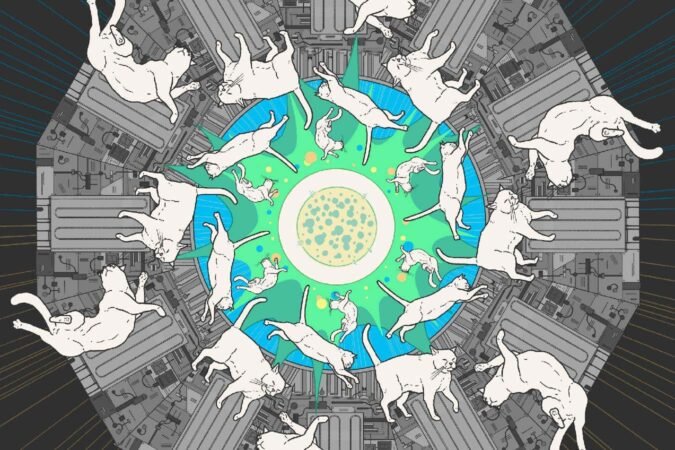Top Highlights
-
Alan Barr, a key contributor to CERN’s LHC, reevaluated its potential during the COVID-19 lockdowns, questioning its use beyond particle discovery.
-
Barr and other physicists are exploring whether the LHC can investigate the fundamental meanings of quantum theory, aiming to unravel its complexities.
-
They successfully demonstrated entanglement between top quarks in a recent experiment, signaling a new approach to understanding quantum mechanics.
- Future entanglement experiments at particle colliders may challenge our perceptions of reality, free will, and the foundational nature of space-time.
New Experiments at the Large Hadron Collider Aim to Unravel Quantum Reality
Scientists at CERN’s Large Hadron Collider (LHC) are embarking on an exciting new journey. Their goal? To probe the mysteries of quantum mechanics. Alan Barr, a physicist at the forefront of this endeavor, reflects on his inspiration during the COVID-19 lockdowns. “I had a bit more time. I could sit and think,” he explains. Barr’s curiosity transformed into a groundbreaking idea.
Traditionally, researchers viewed the LHC as a machine for discovering new particles. However, Barr and his team shifted their focus. They began to explore whether the collider could help decipher the strange nature of quantum theory. This theory paints a reality that feels counterintuitive. For example, particles can exist in multiple states at once and can affect one another instantaneously, no matter the distance.
Last year, Barr and his colleagues achieved a significant milestone. They demonstrated that top quarks, fundamental particles, could enter a quantum state known as entanglement. This phenomenon means that the state of one particle instantly influences another, even when separated. This breakthrough opens the door to a series of experiments that could redefine our understanding of the universe.
Researchers are eager to uncover what this means for concepts such as free will and the nature of reality itself. They want to ask important questions: Why is quantum reality so elusive? What happens to the notion of space-time when we explore these depths?
These experiments at the LHC could lead to profound implications for technology as well. Insights into quantum mechanics often drive advancements in fields like computing and encryption. If scientists can better understand quantum entanglement, they might pave the way for more sophisticated quantum technologies.
As Barr notes, “We can do really different things with this collider.” The future looks bright for those hoping to unravel the fabric of quantum reality. With each experiment, they inch closer to unlocking the secrets of the universe and redefining our technological landscape.
Discover More Technology Insights
Stay informed on the revolutionary breakthroughs in Quantum Computing research.
Discover archived knowledge and digital history on the Internet Archive.
SciV1

